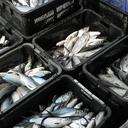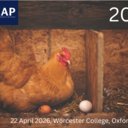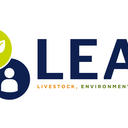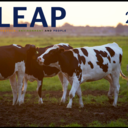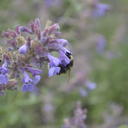Food security in focus in the IPCC Special Report on Climate Change and Land
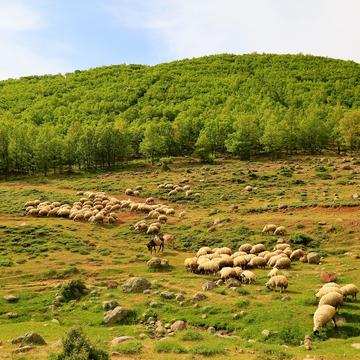
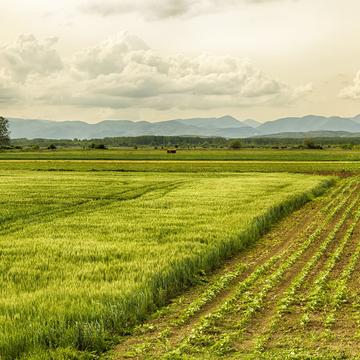
Food security in focus in the IPCC Special Report on Climate Change and Land
Date posted: 12 August 2019
Land is under threat from rising global temperatures and unprecedented rates of land and freshwater exploitation the Intergovernmental Panel on Climate Change (IPCC) warns.
The Special Report on Climate Change and Land (SRCCL) released last week aimed to tackle two important questions: how land use contributes to climate change and how climate change affects land.
The report takes a whole system view across climate change, greenhouse gas emissions, land management, and food security, with analysis of each issue based on the findings of thousands of scientific studies from across the world. They suggest that there is a huge opportunity to use land differently to emit less greenhouse gas emissions, restore ecosystems and store carbon, but this will require coordinated and careful planning to conserve, restore and better manage our land.
Chapter five within the report examines food security and here research from the Oxford Martin Future of Food programme was heavily referenced and influential in the conclusions of the report around sustainable diets, reducing food waste and the potential climate impact of cultured meat.
Reacting to the report, Professor Sir Charles Godfray, Director of the Oxford Martin School and Lead Researcher on the Oxford Martin Programme on the Future of Food, said “The careful analysis from the IPCC reinforces the conclusions from work here at Oxford and elsewhere that we need to think carefully about what we eat and its effects on the environment. Inevitably, we in the west will need to consume less meat. An important challenge is to work out how we can change the food system to both improve health and the environment while retaining vibrant rural economies, especially in areas where livestock production is a major source of livelihoods.”
The IPCC report looks at this in-depth and in discussing the multiple policy pathways and suites of interventions that could aid the adaptation of food systems to climate change, as well as mitigate their climate impacts, the report directly draws from 2018 research on feeding 10 billion people within planetary limits by 2050.
Dr Marco Springmann, lead author on that paper reiterated its findings in reaction to the IPCCs conclusions. He said, “Our land provides the basis for human livelihoods, but it is increasingly threatened by climate change and unsustainable land management. Policy-makers must start to work across departments and with civil society to enable this transformation. Radical change is needed in how we use our land and what foods we grow on it. Avoiding dangerous levels of climate change won’t be possible without large-scale dietary changes towards healthy and more plant-based diets. Such changes would reduce food-related emissions directly, but also free up the amount of land needed for growing bioenergy crops, and for absorbing additional carbon dioxide by growing back forests.”
The IPCC’s analysis included looking at the potential for cellular agriculture (also known as cultured meat) to support a more sustainable food system. It concluded that “its actual contribution to climate change mitigation and food security is largely uncertain and challenges are not negligible,” in part due to recent research by Dr John Lynch and Professor Raymond Pierrehumbert.
”The report shows that joined-up thinking on how we use our land is essential in the face of climate change because agriculture and land management can either contribute to or mitigate against the problem, while also being one of the sectors that will be, and already is, most strongly affected” adds Dr Lynch. ”New technologies or types of farming have great potential to reduce the emissions associated with food production, but we need to take a holistic view and beware of any trade-offs or unforeseen impacts. And we can’t wait for ambitious techno-fixes: we need to manage land more sustainably now”.
The IPCC concluded that climate change is affecting all four pillars of food security: availability (yield and production), access (prices and ability to obtain food), utilization (nutrition and cooking), and stability (disruptions to availability). Its conclusions echoed those from Professor Godfray and other Future of Food researchers over recent years, that coordinated action to address climate change can simultaneously improve land, food security and nutrition, and help to end hunger.
The following papers were referenced in Chapter 5 (including supplementary materials) of the IPCC Special Report on Climate Change and Land:
- Food security and sustainable intensification
Philosophical Transactions of the Royal Society B - Global and regional health effects of future food production under climate change: a modelling study
The Lancet - Analysis and valuation of the health and climate change co-benefits of dietary change
The Proceedings of the National Academy of Sciences (PNAS) - Mitigation potential and global health impacts from emissions pricing of food commodities
Nature Climate Change - Meat consumption, health, and the environment
Science - Options for keeping the food system within environmental limits
Nature - Health and nutritional aspects of sustainable diet strategies and their association with environmental impacts
The Lancet Planetary Health - Climate Impacts of Cultured Meat and Beef Cattle
Frontiers in Sustainable Food Systems - Food Security: The Challenge of Feeding 9 Billion People
Science


